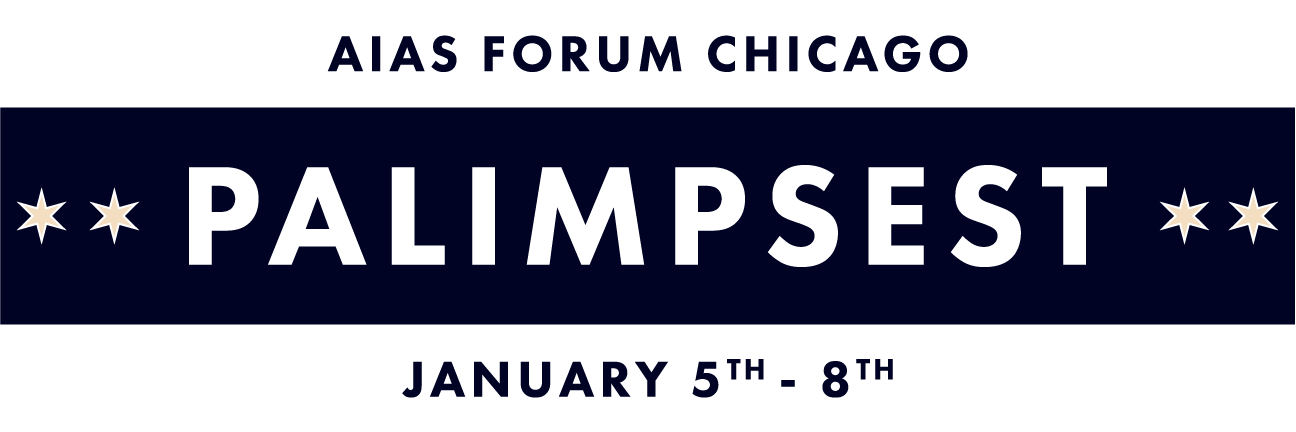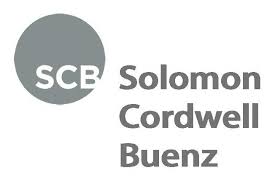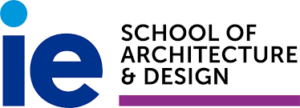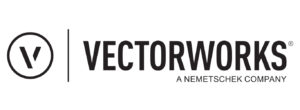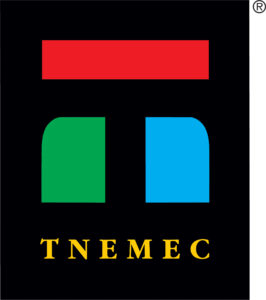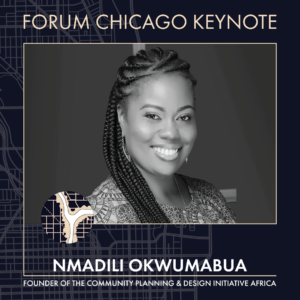About
The AIAS signature conference, FORUM, is the largest annual gathering of architecture students in the world. We are excited to announce that this year’s conference will be hosted virtually from January 5th – January 8th, 2021.
pal·imp·sest
Derrick McCormick | Planning Chair
Ashley Boduch | Planning Vice Chair
Afnan Alamoudi | Programming Director
Jovana Crnomarkovic | Programming Director
Yesha Mody | Marketing Director
Michael Zima | Marketing Director
Mukey Pingmuang | Marketing Director
Chuck Chong | Events Director
Moid Ali | Events Director
Haley Evans | Events Director
Rachel Wiesbrock | Partnership Director
Shandon Herft | Partnership Director
Taylor Proctor | Site Director
Enru Zhou | Site Director
Registration
Early Bird (Deadline November 7th, 11:59 PM ET)
Early Bird Member (Individual): $100
Early Bird Non-Member: $150
Regular (Deadline December 31st, 11:59 PM ET)
Regular Member (Individual): $150
Regular Non-Member: $225
Need a refund? Fill out this form.
Tracks
Track 1 | Palimpsest as Material Continuity
Exploring the ways in which we can experience architecture and sustainability as continuous in time and space, dealing with the entire life cycle of designing and building
Track 2 | Connecting to Culture
Exploring how language enables us to see architecture as both form and theory; not stigmatizing architecture education/academicism or architectural practice but seeing them as one.
Track 3 | Palimpsest as Rewriting of Archetypes
Exploring how health, especially in the current pandemic but also generally, is part of an unjust system; Architectural archetypes like prisons, schools, and hospitals as connected in the current system.
Track 4: Palimpsest as Reimagining
Exploring how we view history to focus on imagining new possibilities as opposed to thinking of returning to normal.
Schedule
| Start Time (EST) | End Time (EST) | |
|---|---|---|
| 1:00 p.m. | 1:20 p.m. |
Opening Remarks |
| 1:20 p.m. | 2:00 p.m. |
Presidents Panel: What’s Comes Next?We’ve made it past 2020, and are just starting the new year. We would like to bring together the Presidents of the allied architectural organizations to discuss what comes next in 2021 and beyond for architecture and architectural education. Many of the challenges we have faced in the past year remain, but the ways we are addressing them continue to evolve. During this panel discussion we will talk about what each organization has in store for 2021 and how students can be a part of the changes that will continue to unfold. |
| 2:00 p.m. | 2:20 p.m. |
NETWORKING LOUNGE: Changing the Conversation about Mental Health |
| 2:00 p.m. | 2:55 p.m. |
Council of Presidents (Part 1 + Orientation) |
| 2:20 p.m. | 2:55 p.m. |
Midwest Quad Roll Call/Lunch |
| 2:55 p.m. | 3:30 p.m. |
SESSION: SMALL WORLD / BIG WORLDIn this session, John discusses the current state of our humanity, the relationship between its two distinct worlds, and the role of design in shaping its future. Context and definition are given to the great design challenges that lie ahead for our profession and discipline, along with opportunities to engage these challenges as students, faculty and emerging professionals. Alternative forms of practice, emerging design technologies, and new ways of seeing architecture will be given space for discourse. Speaker: John Dwyer
|
| 3:30 p.m. | 4:15 p.m. |
SESSION: Airflow and Early Knowledge of the Built EnvironmentGiven today’s emphasis on combating the effects of climate change worldwide, it is no surprise that architects are turning their attention towards intangible aspects of the built environment. Airflow remains one of the oldest components of passive design. Natural ventilation, windows, and even mechanical means like air conditioning often determine a building’s quotient for sustainability. Yet, several centuries preceding the invention of air conditioning in 1902, the multivalent origins of airflow demonstrate how innovations outside of buildings found their way into the practice of architecture. In fact, these discoveries were critical for experiments in anatomy, astronomy, chemistry, and naval sciences during the Renaissance and the eighteenth century. Early modern concepts of environmental management are far more difficult to historicize, given the diverse spectrum of historical actors who grappled with various techniques that allowed them to record the physical world around them. Architects, among these historical actors, were eager to rationalize natural elements so that the interior spaces of buildings could be properly controlled. Pneumatic troughs, hot air balloons, and smoke-filled ships represented parallel milestones serving as the testing ground for how air could be measured. The early modern discourse on architecture and air defined the climates of cultural places as well interactions between closed vessels and natural forces. Well before sustainability became a catch phrase, this earlier period of animate “intimacy” gathers together revised histories of architecture and environment that address natural resources imbued with “affects of time, such as nostalgia, hope, dread, and spontaneity. Speaker: Jennifer Ferng |
| 4:15 p.m. | 5:00 p.m. |
FIRM TOUR: Solomon Cordwell BuenzSpeaker: Madeline Toth |
| 5:00 p.m. | 6:30 p.m. |
General Session:Election: Opening Speeches Track 1: Keynote – Joshua Stein, Founder of Radical Craft |
| Start Time (EST) | End Time (EST) | |
|---|---|---|
| 11:00 a.m. | 1:00 p.m. |
Council of Presidents Meeting (Part 2) |
| 1:00 p.m. | 1:10 p.m. |
Opening Remarks |
| 1:10 p.m. | 1:45 p.m. |
SESSION: THE CULTURAL FACTOR AND THE WORKPLACEHow can the office help transform the business culture into one of higher agility and faster adaptation to changes, now that we have experienced this worldwide experiment? If COVID has shown us anything it is that we need to move to a more flexible culture and in this presentation I will demonstrate the direct link of habits, space, behavior, culture and business Speaker: Elvira Munoz |
| 1:50 p.m. | 2:35 p.m. |
Session: Ten Things to Know About MentorshipSpeaker: Carl Sergio |
| 2:35 p.m. | 3:10 p.m. |
Northeast Quad Roll Call/Lunch |
| 2:35 p.m. | 3:10 p.m. |
Session: The LTCAG Presents: Mental Health Origami2020 was hard for everyone, and in times like these it’s more important than ever to concentrate on your mental health! In this fun, stress-free session, we’ll get to create a fun ~something~ while hearing from and engaging with a panel on good mental health practices and habits! Fun and easy crafts combined with a candid and casual discussion on mental health – did someone say “best session ever”? |
| 3:10 p.m. | 3:45 p.m. |
WORKSHOP: Experience Altered: Student to ArchitectHeard about the path to licensure? Are you on the path now, or just curious? Join fellow student architect licensing advisors for this interactive and informative session! Your peers will share their experiences, answer questions, and inspire your transition from school to the profession through the Architectural Experience Program® (AXP®), the Architect Registration Examination® (ARE®), and licensure. Have fun, win prizes, and plan your next steps!
Speakers: Kristin Lorentzen, Celeste Guarin, Jason Halec, + Martin Smith |
| 3:45 p.m. | 4:15 p.m. |
NETWORKING LOUNGE: The Complete Guide to Life After GraduationRooms: Alternative Career Paths Licensure Graduate School |
| 4:15 p.m. | 5:00 p.m. |
FIRM TOUR: Ross BarneySpeaker: Ryan Gann |
| 5:00 p.m. | 5:05 p.m. |
Wellness Break |
| 5:05 p.m. | 6:30 p.m. |
General Session:Officer Q&A Track 2: Keynote Speaker – Chris Cornelius, Founding Principal of studio:indigenous |
| 7:00 p.m. | 8:00 p.m. |
Event:Collage Competition |
| 8:00 p.m. | 10:00 p.m. |
Event:COP Reception |
| Start Time (EST) | End Time (EST) | |
|---|---|---|
| 1:00 p.m. | 1:10 p.m. |
Opening Remarks |
| 1:10 p.m. | 1:45 p.m. |
General Session:Track 3: Keynote Speaker – Wandile Mthiyane, founder and CEO of Ubuntu Design Group |
| 1:45 p.m. | 2:00 p.m. |
NETWORKING LOUNGE: Get to Know Your Quad |
| 2:00 p.m. | 2:35 p.m. |
SESSION: A System for Psyche? The role of architectural expertise in designing hospitals, mental health centers and prisons 1946 to 1976This talk will examine the role of psychological expertise in postwar American architecture by comparing a series of institutional typologies that resulted from federal construction programs: hospitals, mental health centers, prisons, and multi-family housing. We will also consider the entanglement of what Colin Rowe famously called architecture’s good intentions within a postwar research economy that tended toward a quasi-scientific understanding of psyche.
Speaker: Joy Knoblauch |
| 2:35 p.m. | 3:10 p.m. |
South Quad Roll Call/Lunch |
| 3:10 p.m. | 4:15 p.m. |
Quad Breakouts |
| 4:15 p.m. | 5:00 p.m. |
FIRM TOUR: GenslerSpeakers: Brian Vitale + Scott Hurst |
| 5:00 p.m. | 5:45 p.m. |
SESSION: Zoom into Better Workflows with Vectorworks!Bored with your current design software? Join Vectorworks for our virtual session to dive deep into the essentials. Whether you’re going from sketch to massing model or 3D model to presentation, see how Vectorworks software gives you the freedom to go above and beyond with your designs and renderings in the clearest way possible, with one powerful all-in-one tool. Speakers: Rob Hollis + Sarah Barrett |
| 5:00 p.m. | 5:45 p.m. |
SESSION: Navigating Learning & Teaching CultureLTCPP? What could that possibly stand for?? In this session we will focus on and discuss positive educational environments and culture through the lens of the 2019-2020 Learning & Teaching Culture Policy Project, which was created solely for the purpose of helping students in architecture school find the best ways to change the culture at their school for the better using official NAAB-required policies, group and individual discussions and other practices for cultural change. |
| 5:45 p.m. | 6:30 p.m. |
General Session:Election Closing Speeches |
| 7:00 p.m. | 8:00 p.m. |
Events:Trivia Night Election Event |
| Start Time (EST) | End Time (EST) | |
|---|---|---|
| 11:00 a.m. | 1:00 p.m. |
Council of Presidents Meeting (Part 3) |
| 1:00 p.m. | 1:10 p.m. |
Opening Remarks |
| 1:10 p.m. | 1:45 p.m. |
General Session:Track 4: Keynote Speaker – Nmadili Okwumabua, Founder of the Community Planning and Design Initiative Africa (CPDI Africa) |
| 1:45 p.m. | 1:50 p.m. |
Wellness Break
|
| 1:50 p.m. | 2:35 p.m. |
WORKSHOP: You Heard Whhhaaattt?“Why become licensed, when my degree allows me to do anything … ”; “The best opportunities are unpaid internships, everyone has to put their time in… ”; “I’m pretty sure it’s going to take me ten years to get my license.” How many of these have you heard in your school? Some of these statements make you roll your eyes, while others are questions that can leave you perplexed and disheartened. Student Architect Licensing Advisors and NCARB staff will expose common misapprehensions about the profession, NCARB, its programs, and the licensure process.
Speakers: Cole Hendricks, Isaac McCalip, Harry Falconer, + Martin Smith |
| 2:35 p.m. | 3:10 p.m. |
West Quad & International Roll Call/Lunch Break |
| 3:10 p.m. | 3:45 p.m. |
SESSION: Settler Colonial City ProjectTheorists and activists alike insist on settler colonialism as an enduring structure that shapes the ongoing development of settler colonial societies. And yet, in the United States, there is a widespread understanding of settler colonialism as a mere relic of the nation’s prehistory. Architecture and architectural education follow this understanding so that settler colonialism has received little if any attention as a context for architectural thought and practice. How to explore architecture’s settler colonial dimensions? Taking this as a point of departure for the decolonization of architecture, we will explore this question in this seminar through the work of the Settler Colonial City Project. We ask seminar participants to engage with our website before the seminar and to come to the seminar with an observation about how, where, and when their architectural education bears the trace of settler colonialism. Speakers: Ana Maria Leon + Andrew Herscher |
| 3:45 p.m. | 4:15 p.m. |
NETWORKING LOUNGE: Advocating for a Better FutureLed by this year’s AIAS Advocates Moid Ali, Victor Gonzalez, Rodney Jordan, and Warda Zaidi and one of last year’s Advocate, Rachel Wiesbrock, this call will include breakout sessions corresponding to individual topics that the Advocates have spent the past semester researching. These topics include: Accessibility in the Built Environment, Sustainability and Environmentalism in Architecture, and Humanitarian Architecture. Rooms: Accessibility in the Built Environment – Continuing conversations from last year as an AIAS Advocate, Rachel will be having an open discussion about the importance of disability awareness in architecture and how the ADA is not just criteria to cross off during the design process but the practice of empathy and awareness to connections between buildings and people. Sustainability and Environmentalism in Architecture – In this breakout room, Moid and Rodney will be looking at potential ways we can all help combat climate change through social, political, and science-based solutions. Humanitarian Architecture – Advocating for a more equitable, inclusive, and diverse profession, Warda Zaidi and Victor González highlight their contributions towards the AIAS Advocacy platform. |
| 4:15 p.m. | 5:00 p.m. |
FIRM TOUR: HOKSpeakers: Peter Ruggiero + Brooke Manning |
| 5:00 p.m. | 5:35 p.m. |
Session: Re-imagining who, not howImagination is a self-referential act. We think of what we know, to imagine what could be. This begs the question of “who” is tasked with imagining our future; and “why” is it that their experience should project onto ours?
Architecture and place-making have historically relied on designers’ imaginations and their personal interests to create our collective built reality. Most of the forces that shape those practices, however, live outside those professions and are themselves both causes and representations of some of the world’s biggest challenges like racism, mass-migration, climate change, and poverty.
In the United States, we often think of oppressed communities in terms of their history—“that was so inhumane, I’m so glad we’re past that;” “that happened so long ago, we should just move on;” “it wasn’t my fault”—while thinking of dominant communities in terms of their future—“the future of work;” ”this neighborhood will get better;” “the creative class is revitalizing urban centers.” This judgment is made without acknowledging the compounding effects of intentional actions that one group took in order to exert dominance over the other, and how that is reflected in the world we see today.
In this session, we’ll use our Physical Innovation framework to explore how the built environment that we’re trying to re-imagine came to be, and how oppressed communities can lead the way in which it is planned, designed, and built for our collective future.
Speakers: Carlos Robles-Shanahan + Rafael Robles |
| 5:35 p.m. | 6:30 p.m. |
General Session:Election Results |
| 5:35 p.m. | 6:30 p.m. |
Event:Live Band: Mac Saturn X AIAS |
Tuesday, January 5 | Wednesday, January 6 | Thursday, January 7 | Friday, January 8
Keynotes
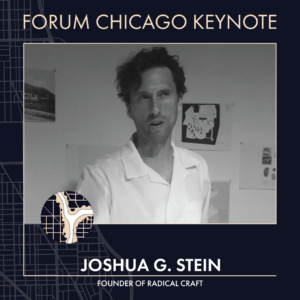 Track 1: Joshua Stein
Track 1: Joshua Stein
Joshua is the founder of Radical Craft, a Los Angeles-based studio that advances an experimental art and design practice saturated in history, archaeology and craft. This inquiry inflects the production of urban spaces and artifacts by evolving newly grounded approaches to the challenges posed by virtuality, velocity, and globalization. Stein is author of Trajan’s Hollow, which examines the role of craft and reproduction in the era of digital scanning and fabrication, and co-editor of Dingbat 2.0, the first-full-length publication on the iconic Los Angeles apartment building type.
He has received numerous grants, awards, and fellowships, including multiple grants from the Graham Foundation for Advanced Studies in the Fine Arts, the AIA Upjohn research award, and the 2010-11 Rome Prize Fellowship in Architecture. He is a former member of the LA Forum Board of Directors and has taught at the California College of the Arts, Cornell University, SCI-Arc, the Milwaukee Institute of Art & Design, and School of the Art Institute of Chicago as the 2019-20 Mitchell Visiting Professor of Architecture. He is Professor of Architecture at Woodbury University where he also directs the Institute of Material Ecologies (T-IME).
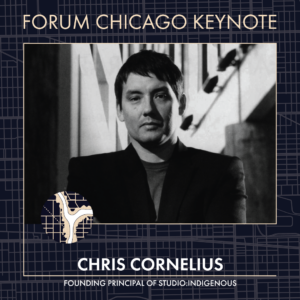
Track 2: Chris Cornelius
Chris Cornelius is a citizen of the Oneida Nation of Wisconsin and an Associate Professor of Architecture at the University of Wisconsin-Milwaukee. He is the founding principal of studio:indigenous, a design practice serving Indigenous clients.
Cornelius was a collaborating designer with Antoine Predock on the Indian Community School of Milwaukee. Chris is the recipient of numerous awards and honors. Including the inaugural Miller Prize from Exhibit Columbus, a 2018 Architect’s Newspaper Best of Design Award, and an Artist residency from the National Museum of the American Indian. Chris has been exhibited widely including the 2018 Venice Architecture Biennale. During the Spring 2021 semester Cornelius will be the Louis I. Kahn Visiting Assistant Professor of Architectural Design at Yale University.
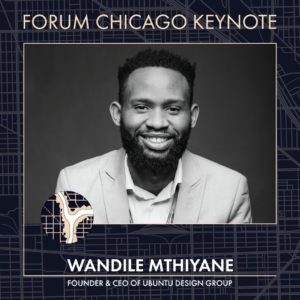 Track 3: Wandile Mthiyane
Track 3: Wandile Mthiyane
Wandile Mthiyane is an Obama Leader, Tedx Fellow, architectural designer, social entrepreneur, and the founder and CEO of Ubuntu Design Group (UDG). Ubuntu Design Group is an architectural organization that focuses on social impact design projects ranging from individual housing to urban design scale.
Influenced by his childhood experiences growing up in post-apartheid South Africa, Wandile founded UDG on the core idea that if apartheid architecture could be used to segregate and oppress, then the community-led design should liberate and enable opportunities for
all.
Track 4: Nmadili Okwumabua
Nmadili is a Professor of African Architecture and Urban Design and the founder of the Community Planning and Design Initiative Africa (CPDI Africa). Her passion for design is rooted in a vision where communities in Africa and the Diaspora are developed with new architectural languages that are Culturally and are Environmentally Sustainable. Nmadili attended the University of Tennessee and Georgia State University, where she pursued her undergraduate studies in architecture and urban studies. She holds a Masters degree in African Studies from Clark Atlanta University, where her research centred on the evolution of Nigerian modern vernacular architecture in the works of Master builder Demas Nwoko. She is a licensed Realtor in the state of Georgia and Certified Property Manager with Broll CBRE South Africa.
In 1999, she founded Southern Sahara USA, a design consultancy service specializing in the research and development of this new architecture. In 2013, she launched CPDI Africa, the culture-inspired initiative that promotes these new architectural languages though design competitions, lecture series, workshops, architecture exhibitions and international global studios for teaching African centred architecture. Cultivating a built environment career that has spanned over 25 years, Nmadili Okwumabua lives in Atlanta Georgia and Abuja Nigeria, where she continues to offer international consultancy services in urban design and real estate asset management.









